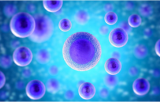
Primary cells
Primary cells are cells taken directly from a tissue or organ and cultured in vitro for a short period of time. Unlike immortalised cells, they do not proliferate indefinitely in culture and are more representative of the physiological state in vivo. They are sensitive to their environment and can be more difficult to maintain in culture due to their senescence phenomenon, which means that they have a limited number of passages. They are also more difficult to transfect, i.e. to introduce foreign nucleic acids into their cells. Primary cells can be used to study the cellular and molecular mechanisms involved in various biological processes and are often used as in vitro models to better understand how cells function in vivo. They include a wide variety of cell types, such as neurons, stem cells, endothelial cells, immune cells and fibroblasts, and are essential for many research studies in cell and molecular biology. Primary cells are different from cell lines, which are homogeneous populations of cells that are stable after successive mitoses and theoretically have an unlimited capacity to divide.
Search result : 4204 product found
Refine your search :
- primary 4190
- mouse 1399
- rat 777
- human 679
- monkey 583
- dog 274
- rabbit 233
- pig 117
- hamster 92
- cow 4
- goat 3
- Primary cells
- Cell line 12
- Porcine 13
- Rabbit 13

